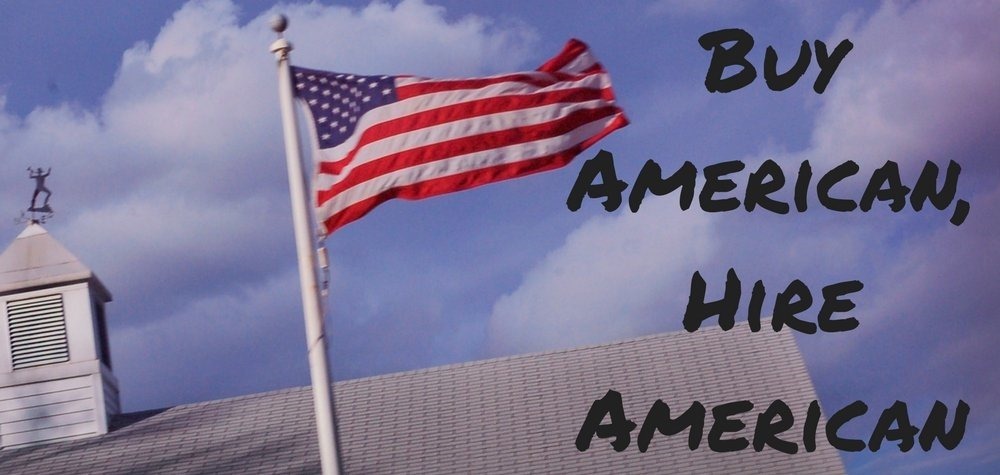How ‘Buy American, Hire American’ Order Signed By President Trump Will Affect Indian IT Industry

US Govt.’s biggest protectionism move: ‘Buy American, Hire American’ order has been finally approved by President Trump. In a highly symbolic gesture, President Trump visited a tool factory at Kenosha, Wisconsin, in the Chicago-Milwaukee industrial corridor, and signed the order.
He said, “Right now, widespread abuse in our immigration system is allowing American workers of all backgrounds to be replaced by workers brought in from other countries to fill the same job for, sometimes, less pay. This will stop..”
The order, besides other things, makes H-1B visa more difficult to obtain, as the criteria and rules have been made tougher, and more ‘pro-American’ than ever.
The order mandates US companies to use American products for manufacturing and enforces local hiring rule more rigorously.
President Trump had promised in his election campaign that he will stop foreign workers from entering and working in the US, and it seems, the first concrete step has already been taken.
How Will It Affect Indian Workers?
The most visible impact would be observed in entry-level programming jobs, as the new changes implement the earlier order issued by US Citizenship and Immigration Services (USCIS), which has removed entry level programming job as a valid reason for issuing H1-B visa for foreign workers.
Besides, the minimum pay of the applicant who wishes to enter the US via H1-B visa work visa has been increased to match American pay standards. This will stop around 30-40% of IT workers from getting a work visa to enter in the US.
Rs 85 lakh annual package or $130,000 is the minimum salary required under H1-B visa now, which is double of what was earlier decided. Companies in the US, which have more than 50 employees, and if 50% of them are working under H-1B or L-1 visa, then they won’t be able to hire more workers under the H-1B visa.
Spouses of those who are working with H-1B visa have also been prohibited from working in the US, under the new rules.
And the effects are clearly evident: The number of H1-B visa applications has drastically dropped this year, and as per analysts, it will further slide next year. Compared to 236,000 applications last year, only 199,000 were received this year.
Around 70% of all H-1B visa holders are Indians, and under computer occupations, 86% of H-1B visa goes to Indians. Hence, the new visa rule changes are all set to majorly impact Indian IT companies, mainly Infosys, Wipro, Tata Consultancy Services.
And to prove this point, stock prices of these companies have dropped 9%, ever since the news about the new visa rules started making rounds.
Just to make a comparison, when a US lawmaker reintroduced another bill, which made H1-B visa even more difficult to obtain, top 4 IT firms collectively lost Rs 22,000 crore in stock value.
And reports are coming in that vast majority of Indians are now looking to return back to India. As per Deloitte analysis, only 600 Indians staying in the US were searching for jobs in the US last year in December, which has now increased to 7000.
It would be interesting to observe how Indian IT industry changes their stand, and approach now when it comes to H-1B visa. Infosys has already declared that they will now hire more American workers. Will other IT firms follow suit?
Do let us know by commenting right here.

Guys… You should check your facts … Minimum Pay and Spouses getting effected are wrong…. They are just proposals in bills pending in the house or senate… This order is just asking various departments to come up with proposals both administrative and legislative for reforming.. The order itself doesn’t impose anything…..
Reporting on h1-b has been pretty bad in Indian blogs and mainstream media